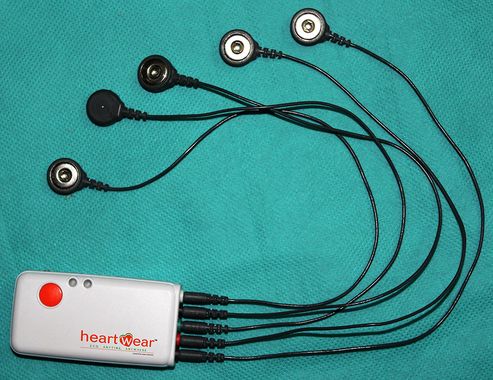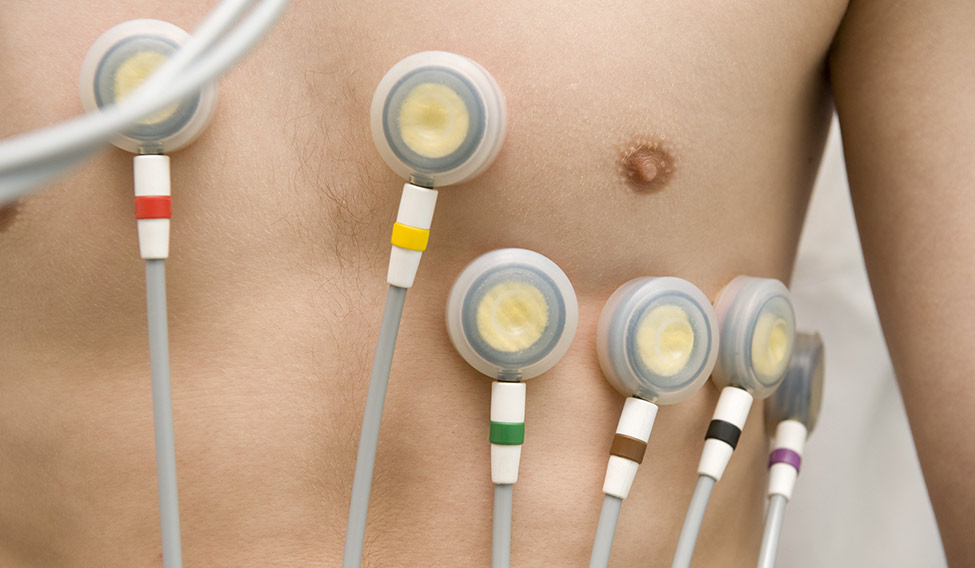After her marriage, Thamarai, 23, would often be seen sitting hunched up in some corner with blank, drowsy eyes. She complained of palpitation at times, but her family brushed it aside. They thought she was just anxious because of her recent marriage.
As the symptoms persisted, she was taken to hospital and an electrocardiogram was taken. “It suggested possible thickening of her muscle in the left lower chamber and an ultrasound scan confirmed the diagnosis of hypertrophic cardiomyopathy (HCM), which is sometimes called sudden cardiac death (SCD) syndrome,” says Dr R. Anantharaman, senior consultant interventional cardiologist at Frontier Lifeline Hospital, Chennai. Thanks to early detection, Thamarai has been able to lead a normal life.
Electrocardiography (ECG) is a valuable tool to detect heart conditions. “Just a basic ECG can diagnose a lot of cardiac conditions, including conduction disorders and blockages in arteries,” says Dr Amit Sharma, consultant interventional cardiologist, Hinduja Healthcare Surgical, Mumbai. Sharma suggests everybody above the age of 30 should go for ECG at regular intervals.
ECG, one of the most common cardiovascular screening tests, uses electrodes to measure the electrical activity generated by the heart as it contracts. “An ECG can show how fast your heart is beating, whether the rhythm of your heartbeat is steady or irregular, and the strength and timing of the electrical impulses passing through each part of your heart,” explains Anantharaman.
 Power to you: Portable ECG devices allow patients to take readings of their heart when they feel any discomfort.
Power to you: Portable ECG devices allow patients to take readings of their heart when they feel any discomfort.
A patient could be asked to get an ECG done as part of a routine health check up or to detect and study heart conditions like heart failure, heart attack, arrhythmia or irregular heartbeat. “Those having diabetes and high blood pressure are advised to get ECG done every year. ECG is useful for patients with cardiomyopathy too. It is a good screening test in young patients with vague symptoms to diagnose serious heart problems early, enabling them to seek guidance and start treatment without delay,'' says Anantharaman.
Portable ECG devices could be a boon for people living in places with limited access to healthcare. It enables them to take a reading themselves when there is discomfort or symptoms like chest pain, shortness of breath, dizziness, increased heart rate or palpitations. “They can send the ECG report to a doctor and the doctor can correlate the patient's ECG with the symptoms. That becomes very crucial for an early diagnosis,” says Sharma.
Portable ECG devices commonly available in the market are single-lead devices and dual-lead devices. “Single-lead devices can only show whether the heart rhythm is bizarre whereas dual-lead devices can even diagnose a heart attack,” says Sharma.
Heartwear, a wearable ECG monitoring system launched recently is run by an android smart phone application. “Once the data is acquired, it will be uploaded on to a cloud-based server. The doctor will then get an alert and he can access the data on his smart phone or computer. The report can be sent to multiple doctors or hospitals to ensure it is looked into immediately,” says Subramanya K. Dixit, CEO of EsMedTek, Bengaluru, that has brought out the five-lead device (which gives a more detailed and accurate diagnosis than single-lead and dual-lead devices). The device, a brainchild of retired air vice marshal P. Govindarajan, weighs just 31gms and costs around Rs 22,000. “It is highly useful for cardiac patients requiring continuous monitoring,” says Dixit.
Though portable ECG monitoring devices aid in early diagnosis of heart problems, it is important that the patient presents the report to the hospital as early as possible. “Otherwise the whole exercise will be futile,” says Sharma.
Some names have been changed.







